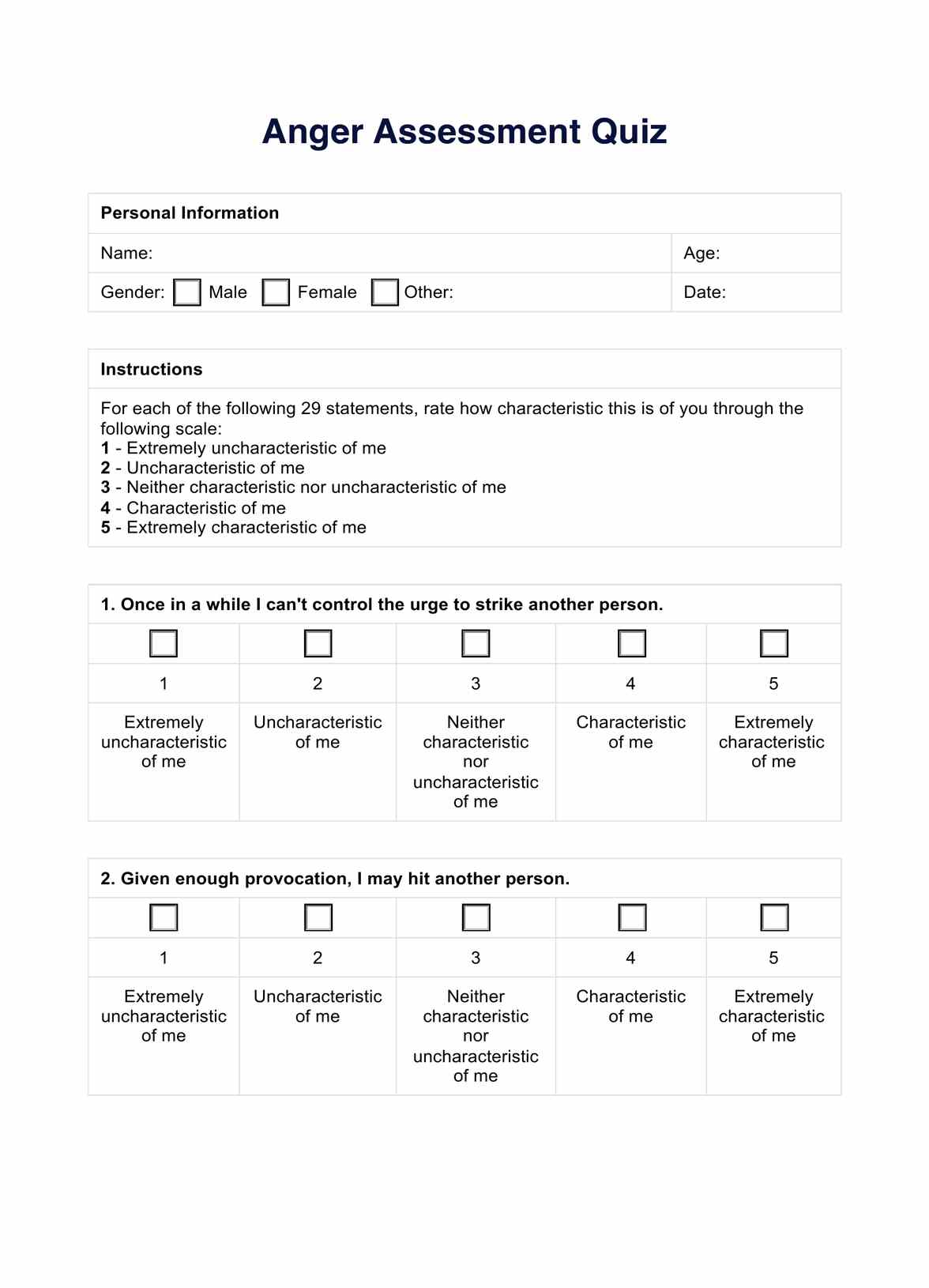Anyone who feels that their anger is out of control or impacting their personal, social, or work life might benefit from an anger assessment.

Anger Assessment Quiz
Access our Anger Assessment Quiz to help you assess clients' anger responses to form a tailored anger management plan. Download your free PDF here.
Use Template
Anger Assessment Quiz Template
Commonly asked questions
Based on the assessment findings, a healthcare professional may recommend interventions such as anger management classes, therapy, or self-help strategies.
The time it takes for anger management to show effects can vary, but many individuals report improvements within a few months of consistent practice.
EHR and practice management software
Get started for free
*No credit card required
Free
$0/usd
Unlimited clients
Telehealth
1GB of storage
Client portal text
Automated billing and online payments











